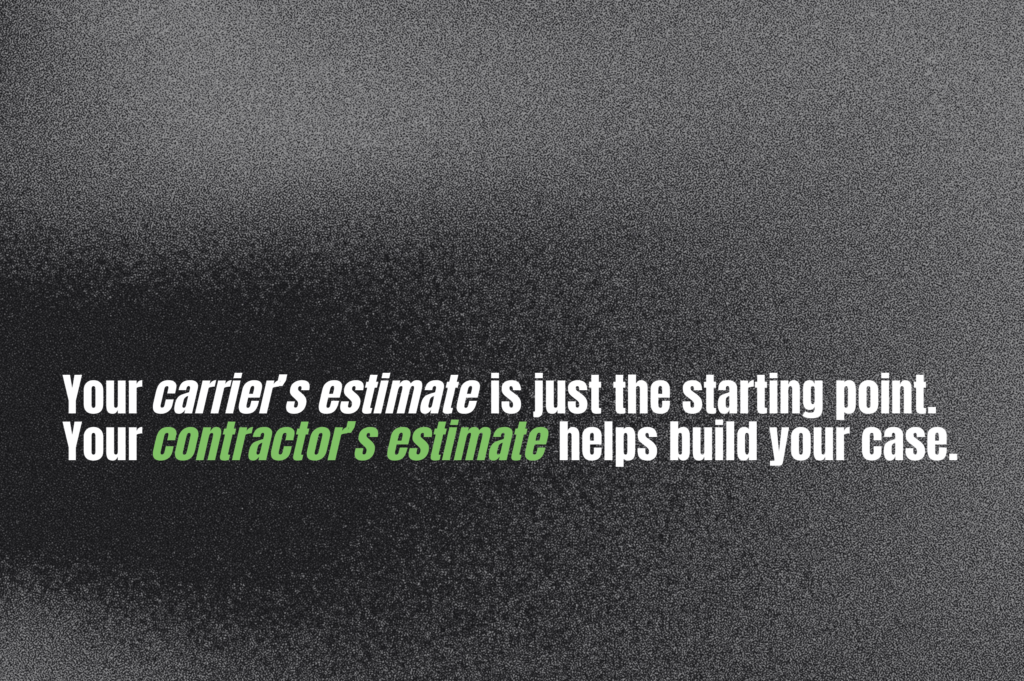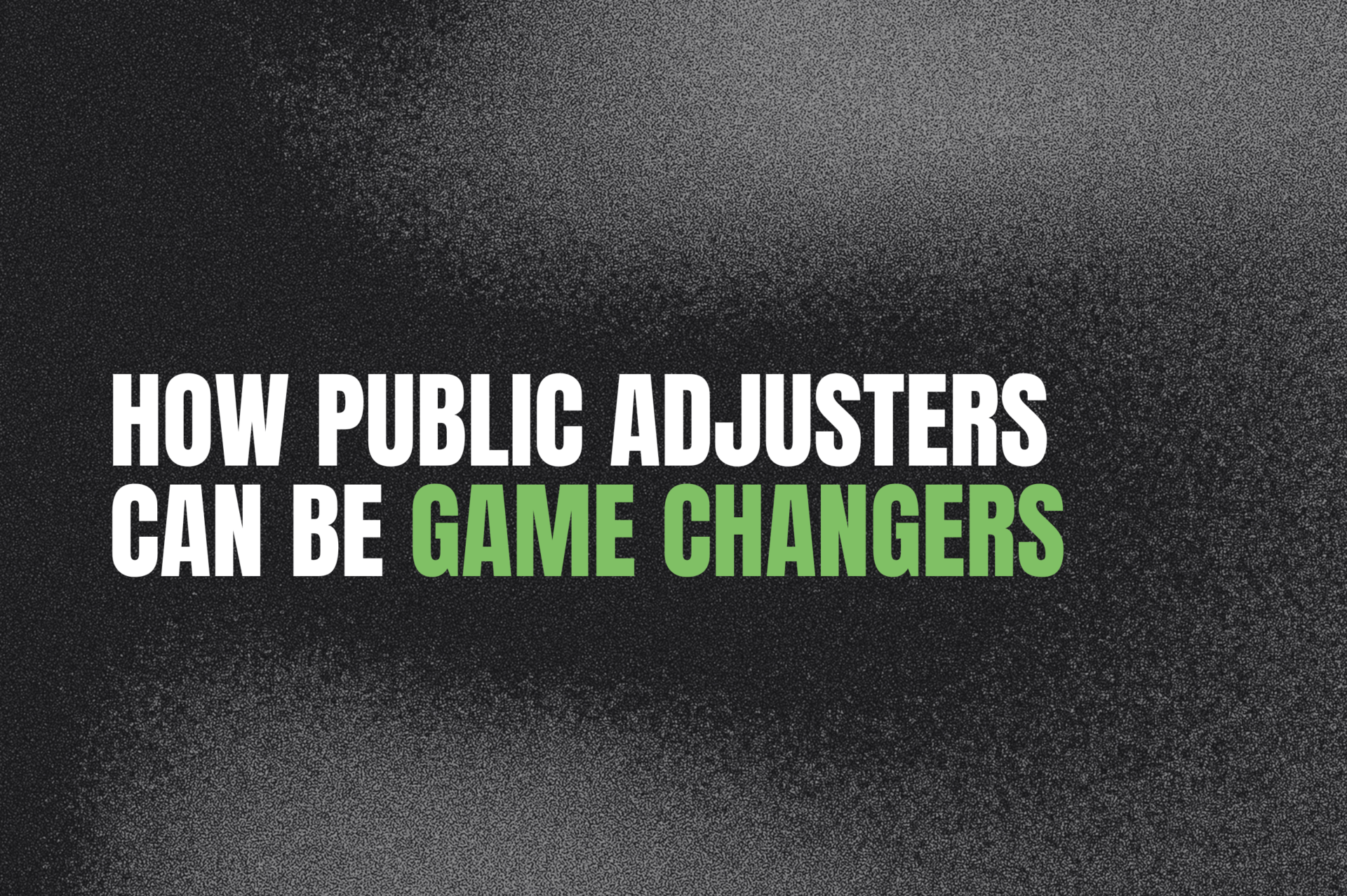Why Your Insurance Estimate Isn’t Enough: The Power of a Contractor’s Estimate
You might be thinking: “Why should I bother getting a contractor estimate when my insurance carrier is going to provide me one anyway?” It’s a fair question. After all, your insurance carrier is paying the claim, right? So why not trust their estimate?
Here’s the thing—while the insurance carrier’s estimate is a starting point, it’s not always the most accurate reflection of what your repair costs will actually be. Getting an estimate from a contractor gives you a clearer picture of the actual costs and strengthens your position in negotiations. When you have detailed breakdowns from a professional who will do the repair work, you gain leverage to challenge lowball offers. It’s a strategic move to help put you in control rather than leaving everything up to the insurance carrier.
Estimate:
A detailed list of damages and cost to repair each item. Estimates can be written by Premier Claims, a contractor, or the insurance carrier (and oftentime, all three).

The Carrier Estimate: What Your Insurance Thinks
Your insurance carrier will provide an estimate based on their damage assessment. However, this estimate is often lower than the actual cost of repairs. Keep in mind that your carrier’s primary interest is to payout the least amount possible in a claim—not ensuring you receive every dollar needed for complete restoration. They may rely on outdated pricing models, overlook hidden damage, or apply policy limitations that conveniently reduce the scope of work documented.
The Contractor Estimate: What the Repairs May Cost
Your contractor’s estimate should more accurately reflect the real-time materials, labor, and project scope costs. This estimate is often higher than the carriers because it accounts for actual market rates, code upgrades, and any unforeseen damages that become apparent during repairs.
Why Both Estimates Matter
At Premier Claims, we use the contractor’s estimate as a critical tool in the negotiation process with your insurance carrier. While the carrier’s estimate provides a baseline, it often falls short of covering the full cost of repairs. A contractor’s estimate reflects real-world pricing—accounting for labor, materials, code upgrades, and hidden damages—which helps establish the value of your claim.
Without both the carrier’s and contractor’s perspectives, you might miss out on the full compensation needed to repair your property appropriately. The contractor’s estimate highlights gaps in the insurance carrier’s assessment, aiming for nothing to be overlooked. Having this documented cost of repairs can strengthen your case and increase the likelihood of a fair claim resolution.
Gather Negotiation Tools
The stronger your evidence, the stronger your case—this is how we push back against lowball offers and fight to ensure you have the funds needed to properly restore your property. Navigating insurance claims can be overwhelming, but you don’t have to go it alone.
Premier Claims is here to advocate for you!
"*" indicates required fields

